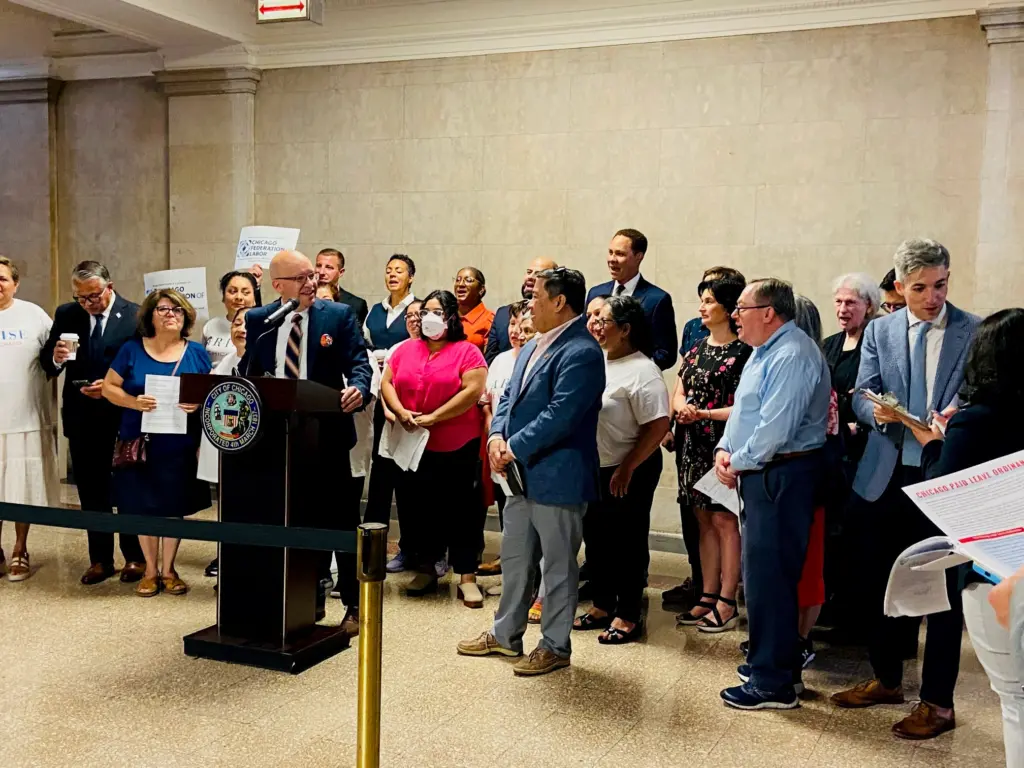July 19, 2023
Everyone should have basic workplace protections so that they can sustain themselves financially, be healthy, and be able to take care of their family. We advocate for benefits and dignity for every working person — particularly those working in the lowest paying and least protected jobs in the country.
Today, the Shriver Center on Poverty Law joined a coalition of workers, City Council members, advocacy organizations, and labor groups at a press conference in support of expanding paid leave for all Chicago workers. The Chicago paid leave ordinance was introduced at today’s City Council meeting by lead sponsor Ald. Michael D. Rodríguez (22nd Ward), chair of the Workforce Development Committee. Twenty-eight of the 50 City Council members are co-sponsors.

“Too many workers, particularly low-wage workers who are mostly women and people of color, are not treated fairly in the workplace,” said Wendy Pollack, founder and director of the Women’s Law and Policy Initiative at the Shriver Center. “Workers earning wages in the bottom 25 percent are the least likely to have access to any form of leave. This ordinance will expand leave for all Chicago workers while giving them the flexibility necessary for a better work-life balance.”
As proposed, the Chicago paid leave ordinance will allow workers to earn one hour of paid leave for every 15 hours worked. The average full-time worker could earn 15 or more days of paid time off in a year. Workers would also be able to use their time off for any purpose, not just illness.
Chicago’s existing paid sick leave ordinance mandates five sick days per year for employees working at least 80 hours within a 120-day period. The proposed ordinance would surpass Illinois’ paid leave requirements, which will require up to five days of leave per year beginning in January 2024. If passed in its current form, it will be the largest expansion of paid time off in any city in the United States.
“No one should have to choose a paycheck over their well-being and the well-being of their families,” said Audra Wilson, president & CEO of the Shriver Center on Poverty Law. “That’s why we’ve worked for years on making workplaces fair and equitable, particularly for women and people of color. Workers with low wages need and deserve paid time off, whether it’s for an illness or a child’s soccer game. By expanding paid time off for all workers, Chicago can be a leader for other communities around the country.”
As introduced, the Chicago paid leave ordinance:
Organizations standing in support of the Chicago paid leave ordinance include Arise Chicago, the Chicago Federation of Labor, Raise the Floor Alliance, and Women Employed.
Everyone should be paid decently and have basic workplace protections.
Our laws and policies must support people by ensuring fair work at a living wage and by providing the income supports families need to be successful.